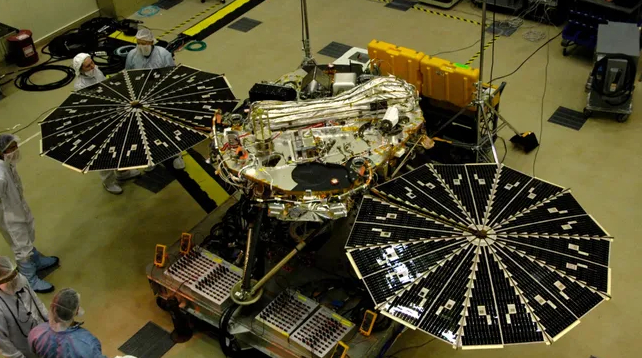Swabs from China’s Tiangong house station reveal traces of a bacterium unseen on Earth, with traits that will assist it perform below traumatic environmental situations a whole lot of kilometers above the planet’s floor.
Naming their discovery after the station, researchers from the Shenzhou House Biotechnology Group and the Beijing Institute of Spacecraft System Engineering say the examine of Niallia tiangongensis and related species might be “important” in defending astronaut well being and spacecraft performance over lengthy missions.
The swabs had been taken from a cabin on board the house station in Could 2023 by the Shenzhou-15 crew as a part of considered one of two surveys by the China House Station Habitation Space Microbiome Programme.
Comply with-up research have traced the expansion of microbes that inhabit the house station atmosphere, revealing a microbiome that differs in each composition and performance from the one discovered on the Worldwide House Station.
The brand new species seems to be an in depth cousin to a identified pressure referred to as Niallia circulans – a rod-shaped, soil-dwelling bacterium that just some years in the past was reallocated to a brand new genus classification, having beforehand been considered a pathogenic type of Bacillus.
Like species of Bacillus, N. circulans and its space-faring kinfolk pack their important chemistry into hardy spores to outlive occasions of nice stress. It isn’t clear whether or not N. tiangongensis advanced on the station or arrived in spore kind with a minimum of a couple of of its distinguishing options in place.
Based on the lately printed evaluation on its genes and features, the brand new species has a novel means to interrupt down gelatin as a supply of nitrogen and carbon, a knack that is useful when it must assemble a protecting coat of biofilm to bunker beneath when situations get slightly tough.
However, it appears to have misplaced the flexibility to make the most of different energy-packed substances its cousins fortunately chow down on.
Not solely does this reveal Niallia generally is a numerous bunch of microorganisms, it demonstrates how readily some types of bacterium could make themselves proper at residence in our orbiting habitats.
There’s additionally not a terrific deal we are able to do about it. An examination of the ‘clear rooms’ NASA used to arrange the Mars Phoenix mission revealed dozens of microbe strains belonging to 26 novel species.

A current examine of those novel micro organism discovered their superb means to outlive situations we might assume to make the atmosphere sterile got here all the way down to genes linked to DNA restore and resistance to ranges of drugs different microbes would discover poisonous.
Understanding thy enemy is clearly a big step in direction of coping with them. If we won’t stop their existence or their means to adapt, it’s critical we are able to predict how microbes will modify to dwelling in house.
It is but to be decided whether or not Niallia tiangongensis poses any menace to the well being of Tiangong’s astronauts, however given its cousin’s means to trigger sepsis in immunocompromised sufferers and its newfound means to interrupt down gelatin, the potential for well being issues from this and different house microbes is a severe problem.
With eyes on launching missions to the Moon and past, it is by no means been extra essential to know the way the tiny passengers sharing our house could also be suited to a life removed from residence.
This analysis was printed within the Worldwide Journal of Systematic and Evolutionary Microbiology.


